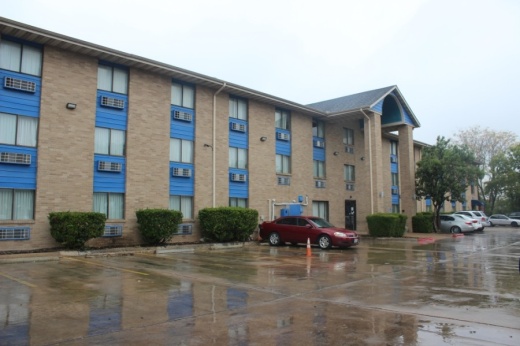The city plans to seek reimbursement for the cost of the hotels—worth millions of dollars—through federal CARES Act funding, which is set to expire by the year’s end. Now, the city is aiming to close two of the facilities that house homeless individuals by the end of December, and further consolidate the facilities in early 2021. The strategy drew some friction from City Council members, who expressed concern that the city would seek to limit its resources while the pandemic was still prevalent.
The five hotels being used by the city as lodges line Austin’s spine—the I-35 corridor. The city is renting the La Quinta Inn’s 129 rooms at 4200 S I-35, the Motel 6’s 71 rooms at 8010 N I-35 and 65 rooms from the Days Inn at 3105 N. I-35. The city also outright purchased two hotels, the 75-room Country Inn & Suites at 7400 N I-35 for and the Rodeway Inn at 2711 S I-35. The city also rents the Crowne Plaza at 6121 N I-35 as an isolation facility, specifically for recovering coronavirus patients who cannot safely quarantine.
Although hotels were not only used as shelters to protect the homeless population and curb the spread of the coronavirus, people experiencing homeless represent a significant portion of the people currently using the facilities. Vella Karman, the city’s interim homeless services officer, estimated about 300 people from the homeless community are now residents of the protective lodges.
Karman said the city wanted to pull out of two hotels it was leasing by December but she could not say which, as it would depend on a variety of factors, including whether all of the current residents could be safely transferred to the other hotels or into permanent housing. The city then planned to pull out of the other leased hotel by early 2021 and transition the city-owned facilities into permanent supportive housing and a bridge shelter for the homeless population.
District 5 City Council Member Ann Kitchen said she was concerned to hear city staff considering closure of some facilities when the fight against the pandemic was not over.
“We’re not past [the coronavirus] at this point, yet, we’re shutting down [protective lodges] and plan to close more next year but we’re still in a pandemic,” Kitchen said. “It concerns me a great deal to start shutting down while we’re still in the midst of a pandemic and talking about a second wave [of infections].”
Karman said the city would not shut the hotels down without ensuring the residents have a safe place to live. However, since most of the funding to operate the lodges is tied to the soon-to-be dried up CARES Act money, the city has to make some decisions.
“It would be an absolute mistake to close down these protective facilities in the middle of any surge or where we are right now, which is still significant community spread,” Karman said. “The funding, primarily, to operate these lodges has been tied to our federal funding and a large amount of that ends at the end of December. [That timing] is what we were planning around initially, having no idea when we started how long this would go on or what turns this would take.”
Since early 2019, the city has been focused on building much needed homelessness resource capacity by buying hotels and converting them into shelter capacity. The city has run into some road blocks and City Council expressed impatience this year with the slow-moving process. Then, the pandemic hit and, suddenly, the city had to begin renting hotels to immediately bolster its capacity to protect the homeless population and curb the spread of the virus.
Karman said the protective lodges are working. The city has been able to move 63 previously homeless individuals into permanent housing; however, pre-pandemic, the pipeline of moving people out of homelessness and into housing was already strained by limited capacity. Karman said the protective lodges have now placed 300 people at the front of the already busy line toward housing and the city needs more resources.
District 4 Council Member Greg Casar urged Karman and city staff to approach City Council before making any decisions to close the facilities and to clarify whether the decision to close is a funding issue or because they found housing for all the residents.





